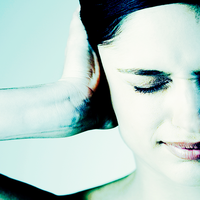Biofeedback for Tension Headaches

Tension headaches are common and can cause a great deal of pain and distress. They can also be hellish hard to treat.
Medicines do not always help, so I have since the 1970s been interested in anything else that could help. In 1982 my boss gave me the money to set up a biofeedback laboratory at Charing Cross Hospital in London, and it turned out that this form of treatment helped around a third of people with tension headaches. Most experts have assumed that biofeedback helps by reducing muscle tension, though I have never been so sure: not everyone with tension headache has increased muscle tone, and many simply reported that they felt less stressed and more in control of their lives.
So it was very interesting to see some new research (NR10) presented yesterday at the 2007 Annual Meeting of the American Psychiatric Association in San Diego, California.
Researchers from Ingok Ja-Ae Hospital in Chungbuk Eumseong, South Korea looked at the efficacy of biofeedback assisted autogenic training for chronic tension headaches.
They examined 35 people aged 20-40 with chronic tension headaches. 17 had treatment as usual, and 18 received 8 sessions of biofeedback. The researchers used some standard measures of headache. Both groups improved, but the people who had biofeedback showed a greater improvement using a simple visual analog scale.
But this is what was interesting: people who had biofeedback had a significant improvement in their levels of anxiety and depression. The reductions of anxiety correlated with the improvements in headache, while biofeedback had no impact on the electrical activity of the muscles in the head and neck. This is an important finding, since it suggests that biofeedback may be helpful with other problems in which anxiety is an issue. There are few problems that are only physical or only psychological: there will almost always be a psychological component in anyone who suffers from chronic pain.
I recently discussed the use of a particular form of biofeedback that seems to help many people with attention-deficit/hyperactivity disorder (ADHD). The treatment seems to help attention itself, but it would also be very helpful if it reduces anxiety, since excessive worrying is a common issue in ADHD.
I shall keep you updated on the use of biofeedback as more research is published.
The most important conclusion from all this work is that it confirms that the mind has extraordinary powers over the body.
And that is incredibly encouraging for all of us.






